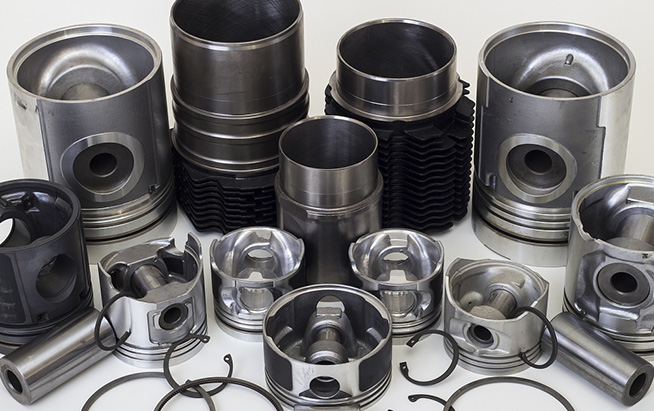Feb. 28, 2024
Hardware
Welcome to our comprehensive guide on piston ring function. In this article, we'll delve into the intricate world of internal combustion engines, focusing on the crucial role played by piston ring. From understanding their function to exploring their importance in engine performance, we'll cover everything you need to know about piston rings.
Piston rings are crucial components found in internal combustion engines. These circular bands fit into grooves on the outer diameter of the piston and seal the combustion chamber. They prevent leakage of gases, ensuring optimal engine performance.

There are primarily three types of piston rings: compression rings, oil control rings, and wiper rings. Compression rings seal the combustion chamber, while oil control rings regulate the distribution of oil on the cylinder walls. Wiper rings, also known as scraper rings, prevent oil from entering the combustion chamber.
Piston Wear rings are commonly made from cast iron, steel, or various high-performance alloys. Each material offers unique properties such as durability, thermal conductivity, and resistance to wear, allowing engineers to optimize engine performance based on specific requirements.
The function of piston rings is paramount to the operation of internal combustion engines. These rings create a seal between the piston and the cylinder wall, preventing the escape of combustion gases and ensuring efficient energy transfer from expanding gases to the crankshaft.
During the engine's operation, piston rings undergo dynamic motion, moving up and down within their grooves. This motion allows them to maintain constant contact with the cylinder wall, forming a tight seal that prevents gas leakage. Additionally, piston rings scrape excess oil from the cylinder walls, improving combustion efficiency.
Understanding the signs of piston ring wear or damage is crucial for maintaining engine health. Common indicators include increased oil consumption, blue smoke from the exhaust, reduced engine power, and poor compression test results. Addressing these issues promptly can prevent further damage to the engine.
Piston rings play a vital role in ensuring the longevity and efficiency of internal combustion engines. By sealing the combustion chamber and regulating oil distribution, piston rings contribute to optimal engine performance, fuel efficiency, and emissions control. Proper maintenance and regular inspection of piston rings are essential for prolonging engine life.
In conclusion, understanding the function of piston rings is essential for maintaining the health and performance of internal combustion engines. By creating a seal between the piston and cylinder wall, DY piston rings ensure efficient energy transfer and combustion, contributing to overall engine efficiency. Regular inspection and maintenance of piston rings are critical for preventing issues and maximizing engine longevity.
If you are interested in sending in a Guest Blogger Submission,welcome to write for us!
All Comments ( 0 )